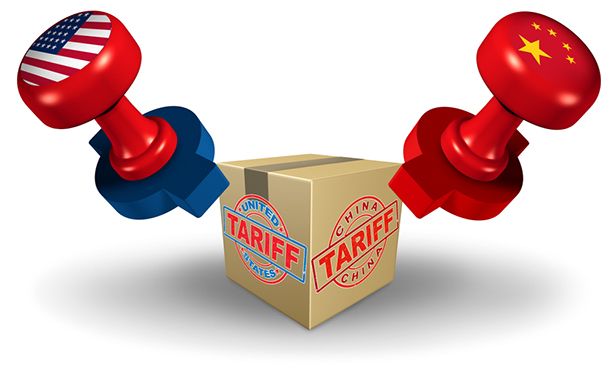September 19, 2019
Industry Groups Urge Congress To Check Trump’s Power To Tariff
The Tariff Reform Coalition wants Congress to take more control of U.S. trade policy.
About two dozen industry lobbying groups led by the National Foreign Trade Council (NFTC) are calling on the United States Congress to limit President Donald Trump’s power to unilaterally impose import tariffs.
The tariffs – and broader U.S./China trade war of which they’re an outgrowth – have had significant impacts on the domestic promotional products industry.

Organized under the name the Tariff Reform Coalition, the groups are concerned about the current and potential future negative impacts of Trump’s tariffs on the American economy. The TRC is encouraging Congress to assert more control over U.S. trade policy and to impose more stringent controls on Trump’s use of tariffs.
Composed of groups representing industries that include auto, retail, agro-food and manufacturing, the TRC detailed its position in a letter to Sens. Chuck Grassley (R-Iowa) and Ron Wyden (D-Ore.), the chairman and ranking member of the Senate Finance Committee, and their House colleagues Reps. Richard Neal (D-Mass.) and Kevin Brady (R-Texas).
The US-China trade war is about to enter the end-game. And the outcome will determine whether the US, Europe and Australia go into recession next year. https://t.co/CC7d4zBp4y
— Kevin Rudd (@MrKRudd) September 16, 2019
“Not since the 1930s has our country relied so heavily on tariffs in an attempt to pick winners in the U.S. market while overlooking the broader consequences for other industries and our economy as a whole,” said Rufus Yerxa, the president of the National Foreign Trade Council.
Yerxa continued: “The Constitution explicitly gives Congress the power to regulate commerce. We believe it is time for Congress to reassert its authority to ensure that tariffs are only used in limited circumstances and only where there is broad consensus between the two branches that such exceptional action is in our overall national interest.”
On Sept. 1, Trump imposed tariffs of 15% on $112 billion worth of Chinese imports. The move followed the previous implementation of duties of 25% on some $250 billion in China-made goods. The levy rate on the $250 billion in products was poised to rise to 30% on Oct. 1, but Trump pushed the date back to Oct. 15. Top trade negotiators from China are expected to visit Washington D.C. in early October for talks with senior U.S. trade officials about a possible new trade deal between the world’s two largest economies.
Potentially HUGE News for the #promotionalproducts industry: A possible interim trade deal between the U.S. and China, and tariff roll back, is reportedly being discussed: https://t.co/H7uK0OXelH @asicentral @Tim_Andrews_ASI @ASI_MBell @ASI_AndyCohen @PKennedy_ASI @asicentral
— Chris Ruvo (@ChrisR_ASI) September 12, 2019
Media reports have suggested that the Trump administration could be considering offering China an interim trade deal, which might include rolling back at least some tariffs in exchange for certain commitments from Beijing. Still, as of this writing, the tariffs remain in place and Trump plans to slap duties on another nearly $200 billion in Chinese imports on Dec. 15. At that point, essentially everything the U.S. imports from China would be subject to tariffs.
The TRC doesn’t want that to happen.
“Whatever the justification for Presidential action to address particular problems, it is critical to weigh the downside effects on American manufacturers, farmers and ranchers, exporters and consumers,” the TRC said in its letter. “It is clear that many of the Administration’s tariff actions over the past two years have had significant collateral effects on domestic prices and have led to extensive retaliation against our exports.”
The letter continued: “Given the emergence of tariffs as the single most significant mechanism for restructuring U.S. trade relations and impacting domestic production, we urge both Committees to consider a robust congressional review of this policy shift. We believe Congress should strongly consider revisions designed to clarify the circumstances in which Executive action is justified under these statutes and to introduce appropriate Congressional review prior to implementation of new tariffs.”
The U.S./China trade war, which has escalated over the last couple years, has hit home for the promo products industry. Issues include increased product prices, destabilized annual pricing, challenges in producing catalogs, and an ever more uncertain selling environment. It’s also made longer-term planning more difficult for some suppliers and caused suppliers (and certain distributors that source direct from abroad) to increasingly look for countries beyond China to produce products. As the search for new sourcing destinations accelerates, some industry leaders worry that more product safety and social responsibility issues will arise.
